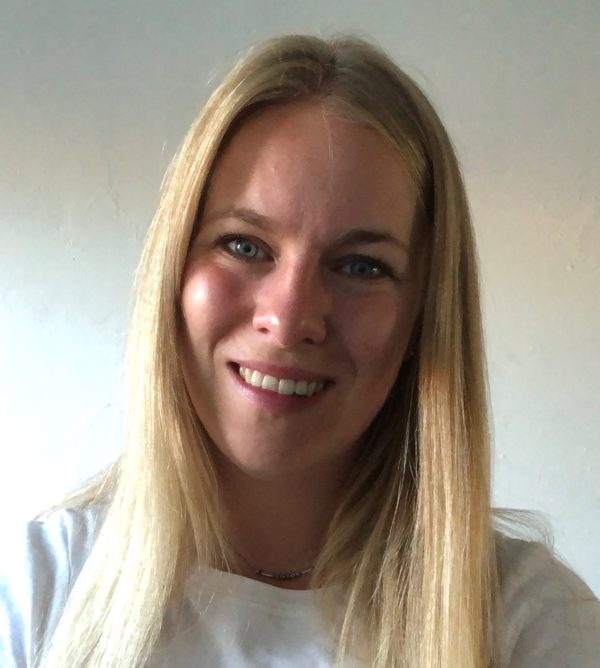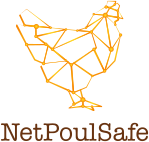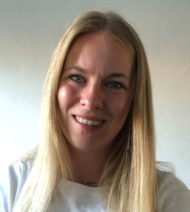
This month we host in our section “focus on a partner” Annick Spaans, from ZLTO. She will explain us her interest in the NetPoulSafe project and the key role of ZLTO in building the NetPoulSafe network.
Hello Annick, could you please explain us what your position is in ZLTO and what your concern with biosecurity is ?
My name is Annick Spaans and I am working as a project manager at ZLTO. ZLTO is an organization which represents the interests of farmers and growers in the southern part of the Netherlands. Around 13.000 farmers and growers are members of our association. Together with them, we work to produce healthy food innovatively and sustainably. My position is Project Expert Food Security & Health, in which I work mainly in the field of animal health and biosafety, in different animal sectors. On behalf of ZLTO I am involved in various European H2020 projects: DISARM, ROADMAP and of course NetPoulSafe.
My concerns around biosafety are on two levels. First, I believe that not only the farmer should ensure good biosafety on the farm, but also the farm visitors should feel responsible for this, like the catching teams, suppliers and advisors. I think communication between the farmer and the visitors can be improved in this regard. Second, I find it worrying that biosecurity measures are still sometimes forgotten when there is an urgent situation. How to ensure that in such situations biosafety still remains a priority, yet practical, is the challenge.
Why were you interested to join the NetPoulSafe project?
In these times of Avian Influenza, in which other (zoonotic) diseases may also be present, it is important to decrease the risk of introduction of pathogens in poultry farms as much as possible. In the Netherlands, I believe biosecurity level in poultry farms is already quite high, but we can still fine-tune. With biosecurity, the farm is as strong as its weakest link.
Who are the members of your team involved, and what is their role?
From ZLTO, I work with Caroline Huetink and Martine Dellevoet on the NetPoulSafe project. Together we form a good brainstorming team on the progress of the project in the Netherlands. Caroline supports me mainly with her veterinary background, her large network and her knowledge about current developments in the field. Martine helps with the financial processes of the project and supports by having creative ideas to execute the project as good as possible.
The GD is subcontractor in the project. Together with Willem Dekkers from the GD, I am executing the validation phase, in which we work online with pilot farmers and their veterinarian and/or advisor to improve biosecurity compliance at farm level.
Another organization which I work closely with is AVINED, which is the interbranch organization of the Dutch poultry sector. AVINED assists in the practical implementation of the project. ZLTO is also helping to optimize AVINED’s Dutch hygienescan: a win-win situation for both parties.
ZLTO is WP1 leader, with the mission to build the AKIS network. Can you please explain what AKIS is, and why it is important to build an AKIS network for NetPoulSafe project ?
AKIS (Agricultural Knowledge and Innovations System) is a useful concept that links people and organisations to promote mutual learning, to generate, share, and utilize agriculture-related technology, knowledge, and information. A strong AKIS is essential to boost initiation and development of innovation projects, to disseminate their results and to use them as widely as possible.
We strive to involve the whole poultry value chain in NetPoulSafe to find better support for biosecurity compliance across the whole sector.
How does the NetPoulSafe AKIS network looks like at the time being and how did you manage to create this AKIS network so far ?
At the moment, 750 AKIS have been in contact about the project in seven European countries. More than half of the AKIS network (55%) consists of farmers. A quarter of the network consist of research institutes, advisors and veterinarians. The other quarter represents a wide range of value chain actors, such as producers organizations, public institutions and integrations. They have contributed to various activities, such as conducting interviews on biosafety, assessing the new versions of the BioCheck, involvement in the pilot farm validation phase and/or communication activities.
What are the next steps ?
We would like to bring the AKIS members together to facilitate knowledge exchange. We are planning to organize online meetings, both at national and international level. Biosecurity compliance will be the topic of these meetings, but in a broader perspective. Here you can think of food safety and food security. As a result, these meetings will be of added value for the entire AKIS network.
You are now starting the validation phase in Dutch farms. Can you tell us what you will set up in the following weeks, and what you expect from this?
In the Netherlands, we have a 1-year online trajectory in which we combine group sessions and coaching on farm level. In March we’ve started the trajectory with poultry farmers and their vets and advisors. First, we had a general meeting about biosecurity. Two weeks later we had a meeting to give explanation about the coaching methodology that will be applied in the follow-up sessions. In May we had a meeting for each subsector about farm zoning, in which we made use of Google Maps satellite images and Paint 3D. In addition, the farmers showed their farms to each other using pictures of essential biosecurity aeras. The participants indicate that the meetings are becoming more and more interesting.
After the summer period we will start with coaching on farm level – the farmer will work together with his veterinarian and/or feed advisor on farm-specific actions to improve biosecurity. I expect that by facilitating these coaching sessions, biosecurity will be of higher priority again, fine-tuned, and an action plan will be put in place to implement and sustain it.
What else do you wish to add?
Initially, the main reason for doing the coaching trajectory online was the corona crisis. Meanwhile, there is a much more pressing reason for this online approach: the ongoing bird flu. It’s nice to see how we can get more out of online meetings, thereby reducing the risk of disease introduction on the farm. So far a success!

